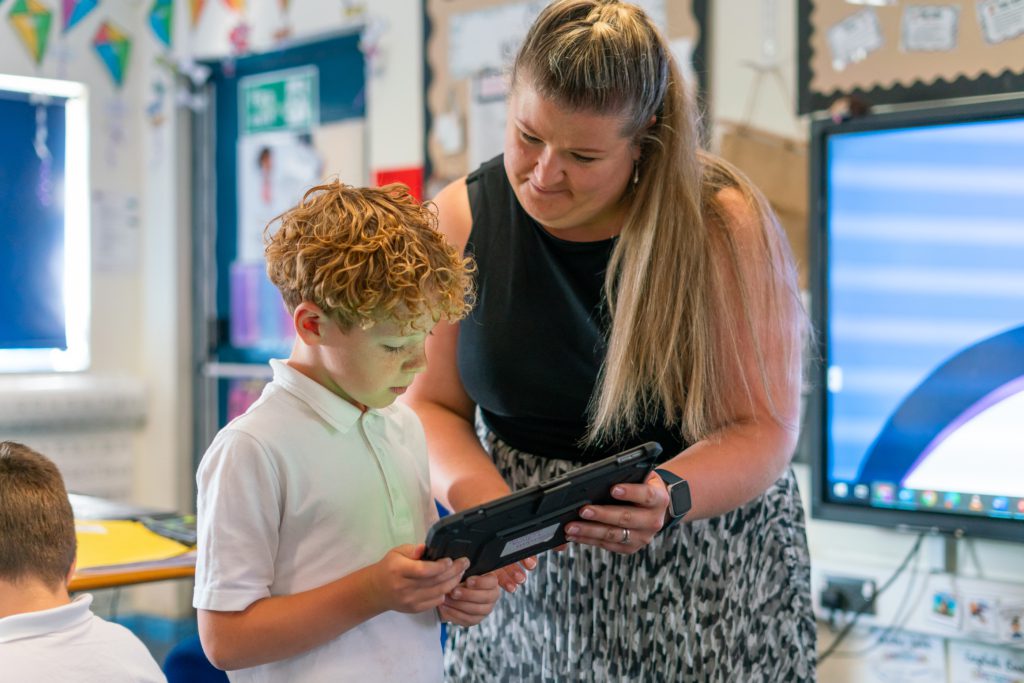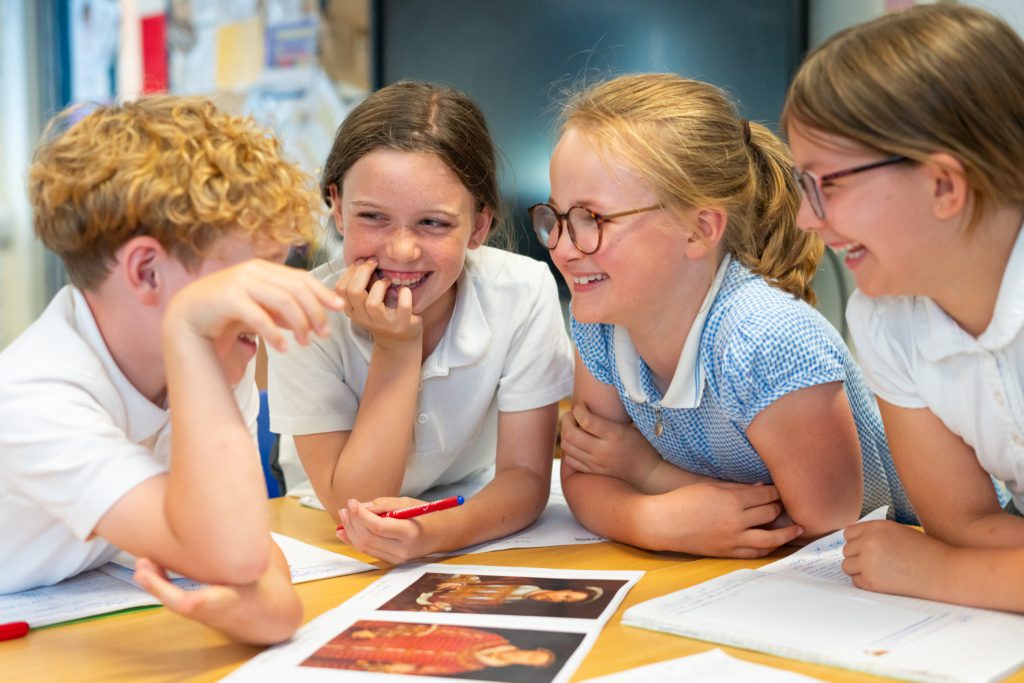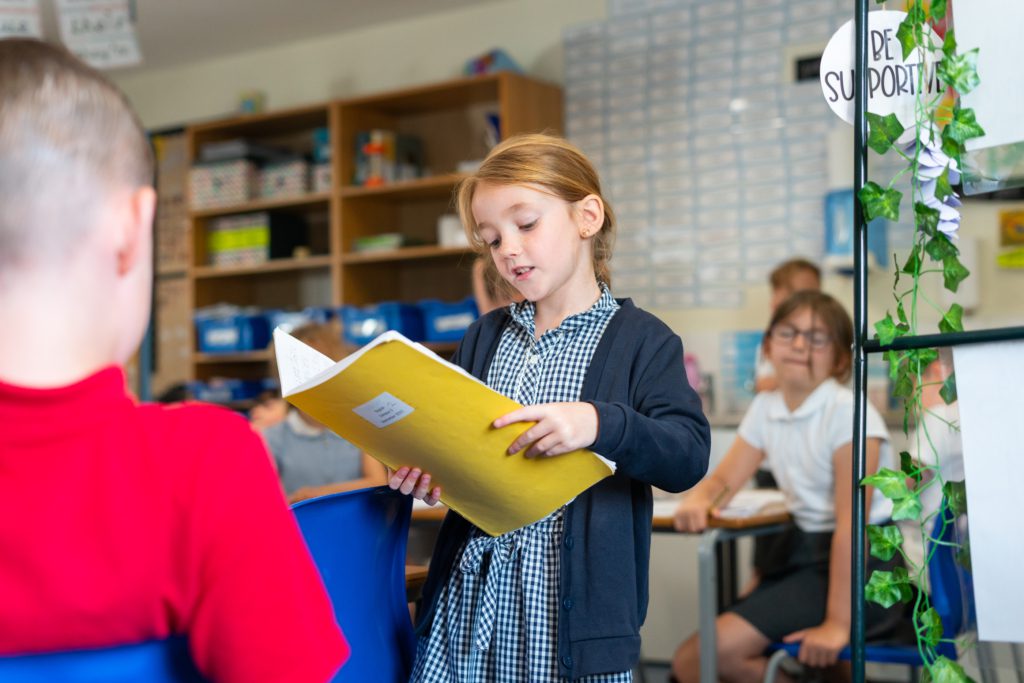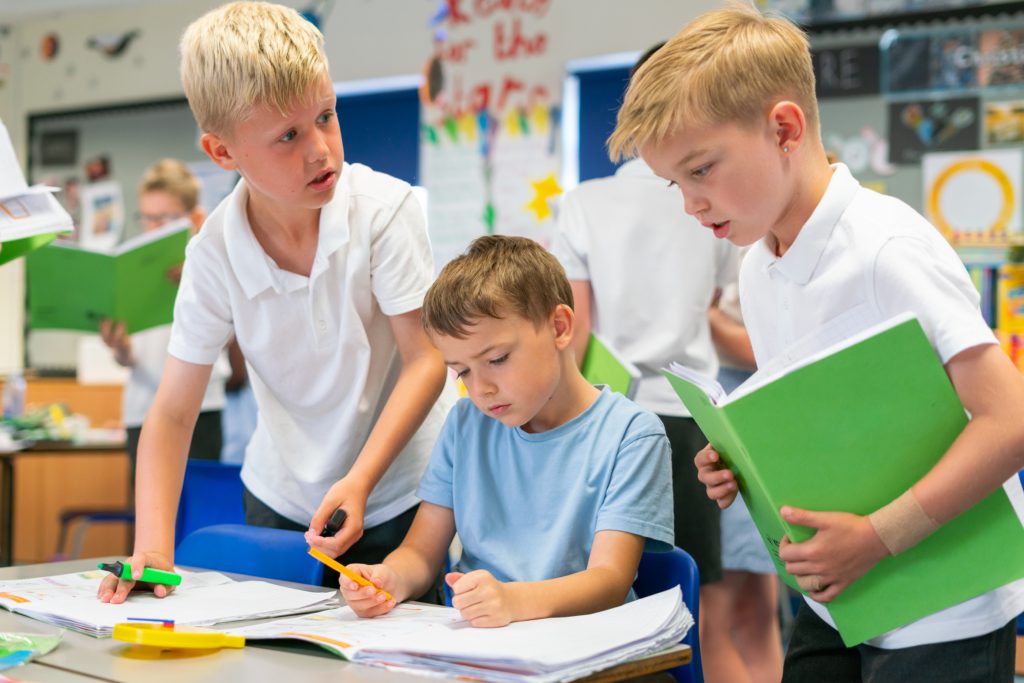Introduction
Our curriculum aims to develop important learning behaviours in our children, as well as impart key subject knowledge and skills. We hope that our approach to delivering the new curriculum will only prove to enhance the good practices we have been developing in recent years. The children develop skills and knowledge that they use and apply to create a range of project-based outcomes.
We look forward to seeing our children develop further into even more confident learners who: problem-solve; investigate; ask questions; work collaboratively; have a good level of concentration and perseverance; relish a challenge; are willing to ‘have a go’, and are not frightened to make mistakes, instead learn from them. Most importantly our children understand that if they find something difficult having these learning attributes will ensure that they are able to achieve it, with the right effort and attitude. We encourage our children not to say ‘I can’t do it!’, but instead to say ‘I can’t do it YET!’
Statement of Intent
Our aim is to provide an excellent education for all our children; our vision for ‘learning together, loving together and growing together’ is rooted in a desire to enable them to be the best they can be, living life in all its fullness (John 10:10).
Our curriculum is designed to provide all our children with the core knowledge and experiences that enable them to flourish.
General Principles
Our curriculum will give children the opportunity to:
- Experience the challenge and enjoyment of learning
- Develop new skills through a variety of interesting contexts
- See clear links between different aspects of their learning
- Understand the purpose and value of their learning and see its relevance to, and impact on their past, present and future
- Develop and demonstrate their creativity
- Explore the breadth and depth of the national curriculum
- Develop a rich and deep subject knowledge
- Learn within a coherent and progressive framework
At the heart of our curriculum lies personal development, well-being and collaboration. Our children will be given the opportunity to develop self-esteem and confidence in their abilities. They are encouraged to follow their own interests, celebrating their uniqueness and that of others. We believe every child can make a positive contribution to the school and local community, and are encouraged to explore ways of becoming active citizens.
Our curriculum is underpinned by our Christian values of Community, Love, Service, Forgiveness, Perseverance and Thankfulness and these are embedded in all that we do.

Statement of Implementation


The National Curriculum is delivered predominantly through topics and themed weeks using the four stages of Engage, Develop, Innovate and Express. The more able are challenged further in their learning and children who find aspects of their learning more difficult are appropriately supported so that they too are enabled to experience success. National requirements and school requirements are mapped out as a whole school and then individual year groups plan the curriculum for their pupils accordingly. The spiritual, moral, social and cultural development of our pupils and their understanding of the core values of our society are woven through the curriculum. The English curriculum is taught using RWI for phonics, CLPE – Power of Reading for writing and Accelerated Reader. The Maths curriculum is currently delivered using the White Rose planning schedule which enables children to develop their reasoning, investigative and problem-solving skills. We use Understanding Christianity to teach RE using a teaching and learning approach to enable pupils to move from an understanding of the biblical text to an understanding of what this means for Christians, including opportunities for pupils to examine and evaluate connections between these ideas and the wider world.
Teachers use pedagogical content knowledge to maximise learning opportunities. Our approach to teaching and learning supports our curriculum by ensuring that lessons build on prior learning and provide sufficient opportunity for guided and independent practice. There is no lesson style expected at Sutton-at-Hone but planning for progress within lessons will include: Literacy, Feedback, Questioning, Challenge, Direct Teaching, Collaboration and Independence. Children are encouraged to work collaboratively and deeply using structures such as Kagan. Learning goes beyond the National Curriculum. We have devised a list of ‘50 Things to do before you leave Sutton-at-Hone’. This will enrich the curriculum and the learning opportunities as well as encourage children to try new things, make wonderful memories and learn vital life skills.
Statement of Impact
Teachers use assessment for learning to inform planning on a day-to-day basis and term to term. Target Tracker and summative assessments are used to assess and track the knowledge and skills pupils have gained against expectations in English, Maths and Science. The children’s well-being and involvement are also assessed and tracked throughout the year using Leuven. All assessments, both summative and formative, are used to identify children who need intervention or additional support which is monitored regularly. Pupil outcomes, and therefore the quality of the curriculum, are evaluated and adaptations and changes are made accordingly. Our summative assessments allow pupils to demonstrate their growing understanding of their subjects and teachers to assess the impact of their teaching. These summative assessments are typically taken three times a year, enabling teachers to focus on formative assessment from lesson to lesson. Our formative assessments are designed to support students in achieving fluency in each subject. This means that in lessons pupils are quizzed on prior knowledge in order to embed this knowledge in their long-term memory. This frees up their working memory to attend to current learning. We are particularly conscious of the role that literacy and vocabulary play in unlocking the whole curriculum. Our teachers explicitly teach the meaning of subject-specific language, and we expect lessons to contain challenging reading and writing. Knowledge organisers provide students with key information in each subject, enabling them to develop their understanding of key concepts outside of their lessons. We also encourage all pupils to read widely.

If you require any further information about our curriculum, please do not hesitate to contact the school office who will put you in contact with the relevant subject leader.

